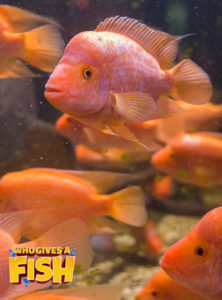A Sight Like This
|
|
|

I wanted to write about this poem, just vaguely aware of what I wanted to say. Our first thought about a matter is almost always sure to be wide of the mark. What first appears, viewed from the vestibule should not be elevated to a grand conclusion, an epic.
The poet illustrates by suggesting a school of fish, say African cichlids, suspended in formation in still water. Like Homo Sapiens emerging from a train station streaming toward their offices, rote habit, morning after morning… They (humans) will do this until a change in circumstances forces a variation in movement. The cichlids are suspended on the cusp of a change in direction, of movement… How to describe this steady state, this stasis…
What is change? What is the cause of a pivot in circumstance? Or the tipping point when the flow of circumstance is altered a few degrees one way or another, or in a more radical case, reversed? Can one “see” the transition when history is changed by moral impetus; when a “new” story is there to be told? The poet says that “the pulse of intention does not move so that one can see it.” There’s no label, no identifying marker for the action that we take, action that happens because of the moral code, of what we hold to be most precious. Is action chosen, voluntary? Or something that just happens?
There’s one thing to know with certainty:
The future of time is determined by the power of volition.
Marianne Craig Moore, born on November 15, 1887, in Kirkwood, Missouri, was a poet, essayist, and editor from the Modernist movement. She was the author of many books, including her Collected Poems (Macmillan, 1951), which won the National Book Award, the Pulitzer Prize, and the Bollingen Prize. She died on February 5, 1972